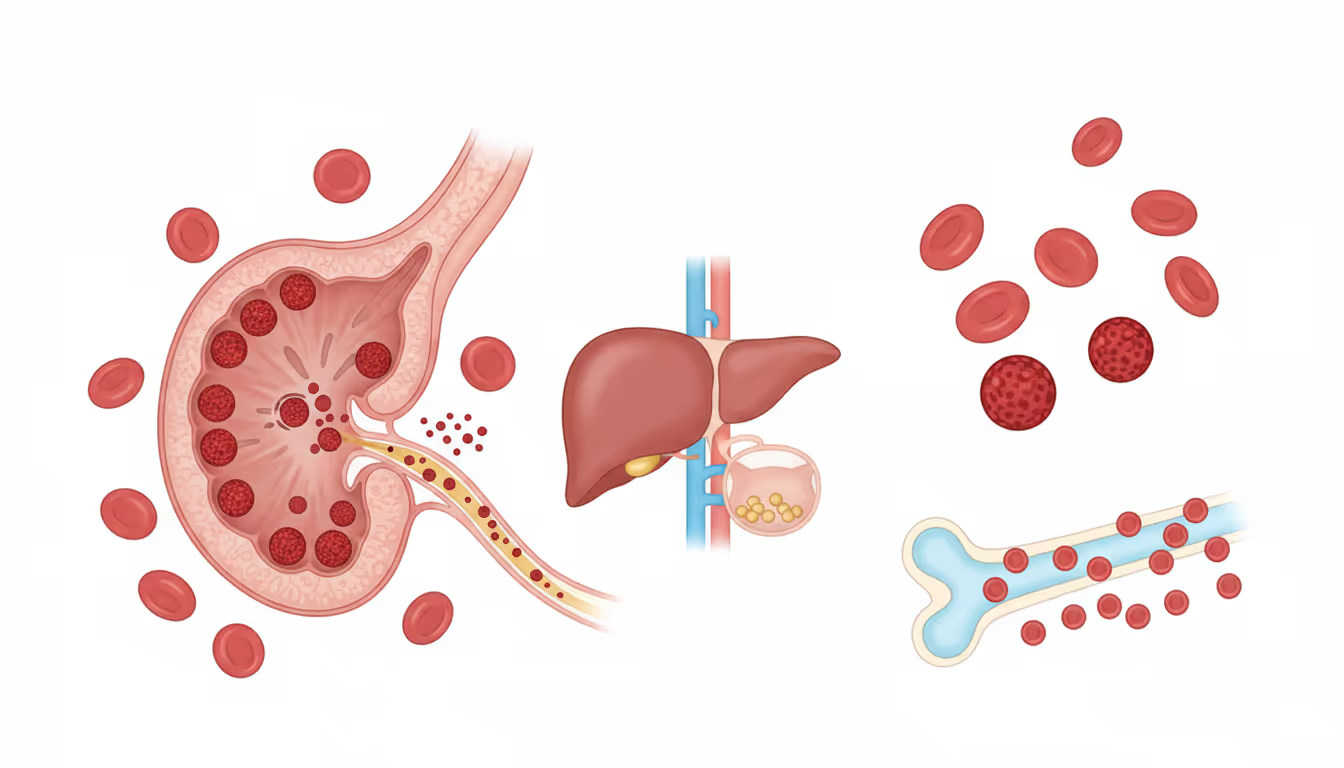
Congenital Hemolytic Jaundice, also referred to as hereditary spherocytosis (HS), is a genetic disorder affecting the red blood cell membrane. It is clinically marked by jaundice (yellowing of the skin) and an enlarged spleen. In this condition, red blood cells are smaller, rounder, and more fragile than usual, adopting a spherical shape instead of the typical biconcave disk shape. These spherical red cells, known as spherocytes, lack flexibility and are easily trapped in narrow blood vessels, especially within the spleen, where they are destroyed (hemolyze), resulting in anemia.As red cells accumulate in the spleen, splenomegaly often occurs. The breakdown of these cells releases hemoglobin, and the heme component is converted into bilirubin, which causes jaundice. The excess bilirubin may lead to the development of gallstones, even in young children. Additionally, the rapid destruction of iron-rich red cells can cause iron deficiency.Hereditary spherocytosis is most frequently observed in individuals of Northern European descent and often presents during infancy or early childhood, causing anemia and jaundice. The bone marrow compensates by increasing red blood cell production, but during viral infections, if red cell production halts, severe anemia, known as an aplastic crisis, can ensue.Lab tests usually reveal numerous spherocytes and an increased number of reticulocytes (young red blood cells), elevated bilirubin levels due to cell breakdown, and heightened osmotic fragility of red cells. HS arises from a deficiency in a protein called ankyrin, which is necessary for the stability of the cell membrane. The specific ankyrin in red blood cells, ankyrin-R or ankyrin-1, is encoded by the ANK1 gene located on chromosome 8 at band 8p11.2. HS follows an autosomal dominant pattern of inheritance, meaning a child has a 50% chance of inheriting the condition from an affected parent.Treatment often involves removing the spleen (splenectomy), which halts red cell destruction despite the persistent cell defect. However, young children without a spleen face a higher risk of severe bloodstream infections, especially from pneumococcus bacteria, so the procedure is typically delayed until after age 3. Prior to splenectomy, vaccination against pneumococcus is recommended. Individuals with HS or ongoing hemolysis should take iron supplements.Following splenectomy, patients generally enjoy a normal life and life expectancy. HS is also known by other names, including severe hereditary spherocytosis, spherocytosis type II, ankyrin deficiency, ankyrin-R deficiency, and ankyrin1 deficiency.




